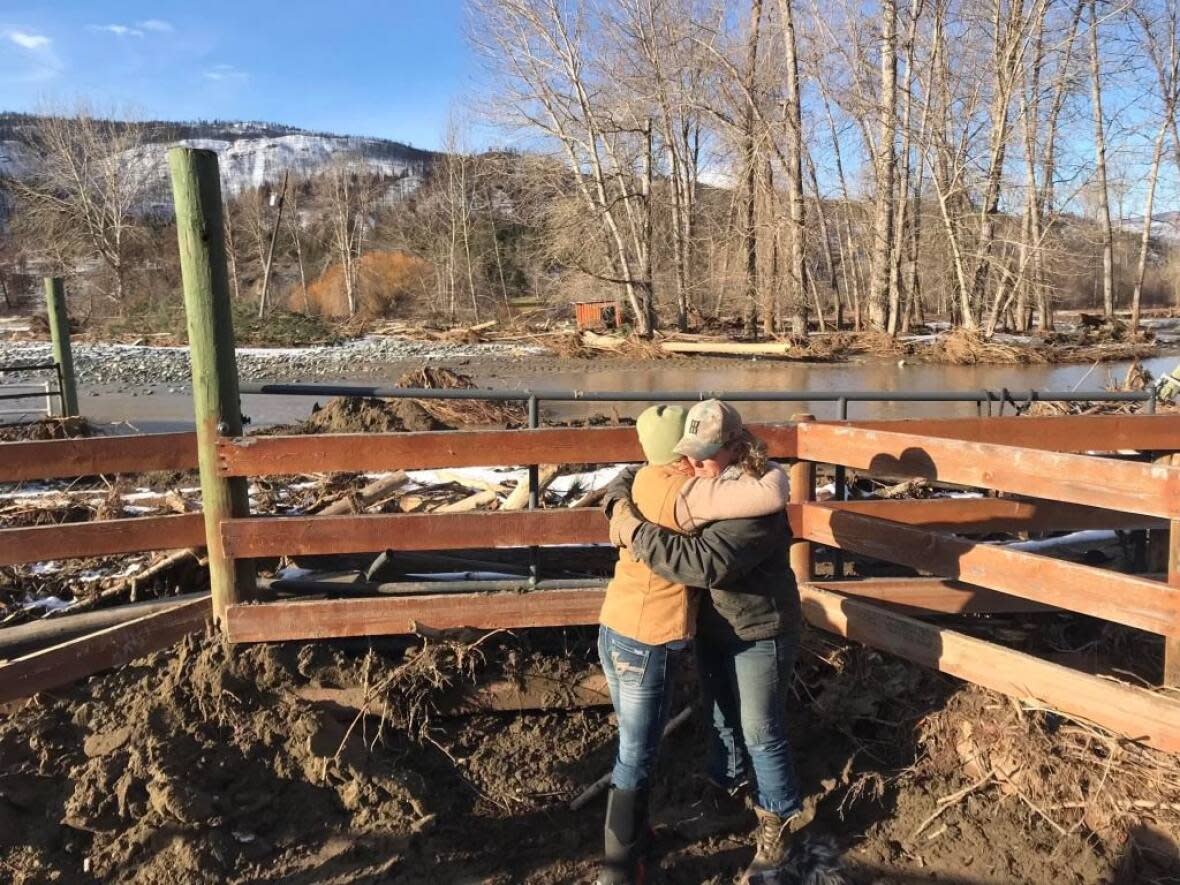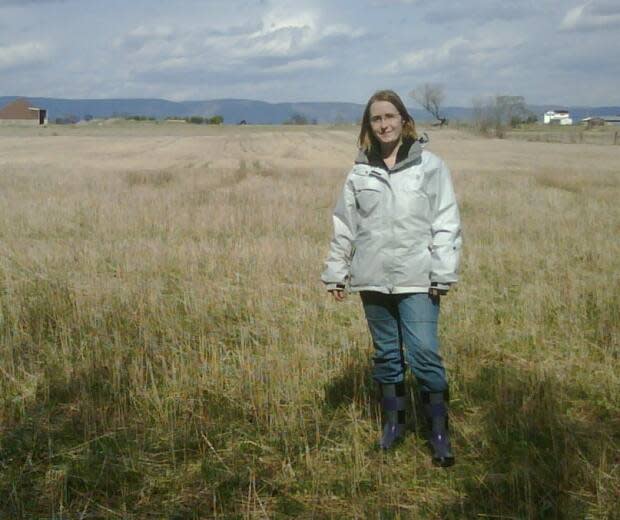Many B.C. ranchers impacted by wildfires and flood still haven't received financial aid

Merritt, B.C., farmer Rhonda MacDonald was hit by a double whammy of wildfires and floods last year but has yet to receive the financial assistance promised by the federal and provincial governments.
MacDonald, who owns Bar FX Ranch located between Highway 8 and the Nicola River, was one of the ranchers struggling to rescue livestock while evacuating from her home as fires raged across the B.C. Interior last summer.
To make things worse, most of her property — like dozens of other farms and homes located along the highway — was washed out by river flooding in November.
"It's been chaotic, to say the least," MacDonald told host Shelley Joyce on CBC's Daybreak Kamloops. "We ended up losing 20 per cent of our cattle herd and spent six weeks preparing for the fire and trying to round up our cattle, and rolled from that right into the flood."
"There was nothing we could do about the flooding, and within a short span of 12 hours, we watched a lifetime of work float down the river."

MacDonald says she has been living in limbo and would need about $450,000 to repair the ranch fencing and $300,000 to repair the ranch's irrigation system, but she hasn't heard anything from the B.C. government after she applied for its AgriRecovery fund.
Last August, the provincial and federal governments announced increased support for the agricultural sector, including a more than $100 million boost to the joint AgriRecovery program, support for cattle relocated by wildfires, and a Wildfire Emergency Feed Program to offer two weeks of support for commercial livestock businesses without feed.
B.C.'s Ministry of Agriculture told CBC in a written statement that applications for wildfire-related relief from the AgriRecovery program will be accepted from operators of tax-filing farms until Jan. 31. Meanwhile, more than 130 farmers have been granted a total of $5.2 million from the program.
The ministry also says the AgriRecovery program will be open to applications for flooding-related financial assistance later this month.
But the province is asking farmers to pay upfront for the supports they need, and then submit their applications with receipts and photos as proof.
"What needs to happen is we need some government support behind us and we need it now," MacDonald said. "We don't need it another 60 days from now."
In a letter addressed to B.C. Agriculture Minister Lana Popham, the National Farmers Union of Canada based in Saskatoon echoes the urgency for ranchers impacted by wildfires and floods to receive funding from the AgriRecovery program.
"Ranchers who managed to survive the summer's drought and fires have seen their hay supplies washed away or ruined by the floods," president, Katie Ward wrote.
"With widespread drought across Western Canada, feed is increasingly in short supply, and already high hay prices are going up as availability drops."
Ward says it's challenging for many farmers to pay upfront for infrastructure repairs and hay from Alberta after all the hay was lost to fire and flood in B.C.
"I hope that Minister Popham and Minister [Marie-Claude] Bibeau federally can come to the table with a program that's going to take care of farmers at all different economic levels, because there are going to be lots of folks in the current situation who can't afford massive feed and shipping costs upfront, but they still have to feed their animals."

MacDonald says she has lost 300 tons of hay and been fortunate enough to receive hay donated by farmers in northern B,C., but she hopes governments can take quick action to support ranchers in urgent need.
"The government really needs to step up and ensure that their farmers and ranchers are getting help, so that they can continue to produce," she said.
LISTEN | Rhonda MacDonald calls for immediate assistance from provincial and federal governments :

 Yahoo Movies
Yahoo Movies 
